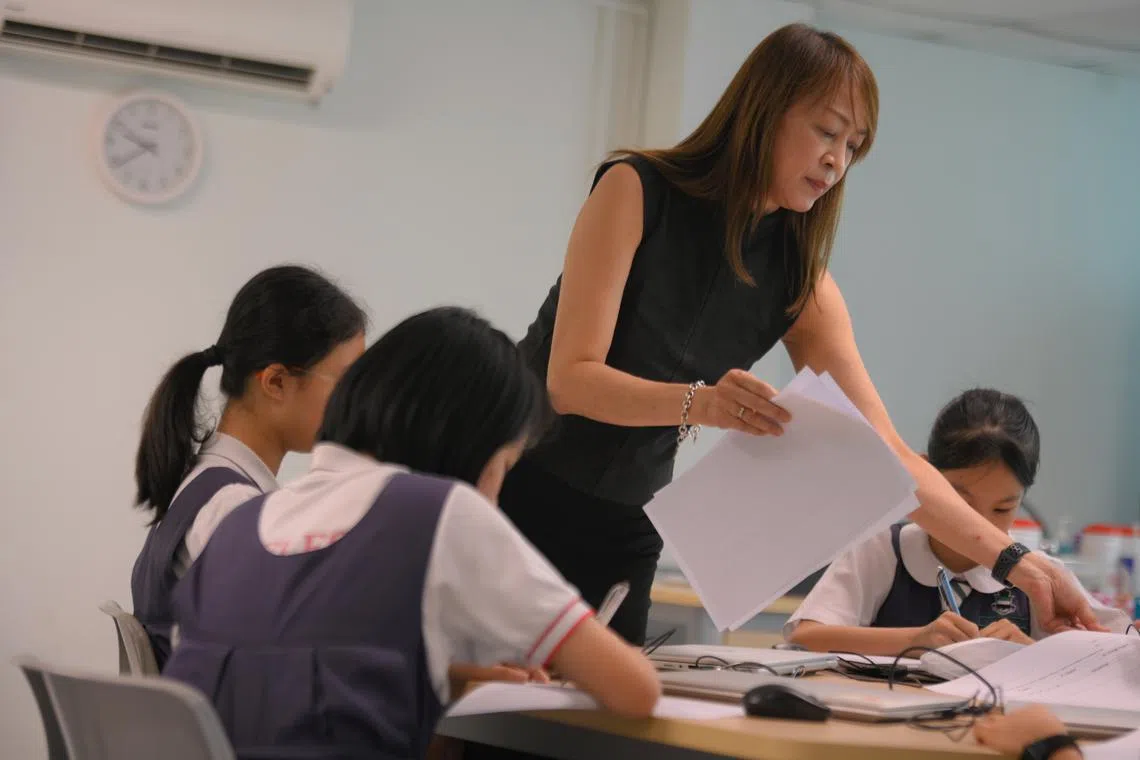The Gifted Education Programme, 40 years on: A look back at its history
Sign up now: Get tips on how to help your child succeed

After 40 years, Singapore is revamping the Gifted Education Programme, a scheme catering to the top 1 per cent of primary school pupils.
PHOTO: ST FILE
SINGAPORE – After 40 years, Singapore is revamping the Gifted Education Programme (GEP), a scheme catering to the top 1 per cent of primary school pupils which has met praise for the achievements of its alumni but also drawn allegations of elitism.
In its updated approach, all primary schools will identify their own high-ability pupils and run programmes for them,
The Straits Times looks back at its 40-year history.
1979-1984: Beginnings
1979 - Dr Goh Keng Swee’s New Education System is implemented, with streaming and special provisions for gifted children.
1981 - Minister of State for Education Tay Eng Soon leads a mission to study gifted programmes in other countries, including Israel, Germany and the USSR.
1983 - A Special Project Unit (now called the Gifted Education Branch) is formed and trained by Japanese-American expert on education for gifted children Irving Sato.
1984 - GEP starts in primary and secondary schools simultaneously, with Rosyth and Raffles Girls’ taking in pupils at Primary 4, and Raffles Institution and Raffles Girls’ in Secondary 1.
1985-2001: Growth and expansion
1985 - Anglo-Chinese Primary becomes the third primary school to offer the GEP.
2001 - By now, the programme is offered in nine primary schools and seven secondary schools.
The nine primary schools are: Raffles Girls’ Primary School, Rosyth School, Anglo-Chinese School, Nanyang Primary School, Tao Nan School, Henry Park Primary School, Catholic High School (Primary), St Hilda’s Primary School and Nan Hua Primary School.
The seven secondary schools are: Raffles Girls’ School (Secondary), Raffles Institution, Anglo-Chinese School (Independent), Dunman High School, Nanyang Girls’ High, Chinese High School and Victoria School.
2002-2014: End of secondary school GEP, questions of elitism and first calls for removal
2002 - The Ministry of Education (MOE) says Raffles Institution, Raffles Girls’ School and Chinese High will stop offering the GEP by 2004 in favour of the six-year Integrated Programme (IP), which allows students to skip the O levels.
2006 - MOE announces that all secondary schools will stop offering the gifted programme. Before the IP started in 2004, about 600 students joined the GEP in secondary school each year. In 2006, it had just 13 students.
2008 - MOE announces that GEP and non-GEP pupils would spend up to half of their curriculum time together amid concerns that those in the gifted programme are becoming increasingly socially isolated.
2014 - The Straits Times reports that two enrichment centres are coaching about two-thirds of all primary school GEP pupils, outside of their school lessons.
2014 - Ang Mo Kio GRC MP Inderjit Singh says that the existence of the GEP in certain schools creates the impression of elitism. He adds: “I believe that the GEP has run its useful course and we should do away with this programme where we gather students who pass an entrance exam together in just a few schools.”
2014 - MOE states that, as a group, GEP students had performed well in the national exams. At the time, close to half of the President’s Scholarships – 44 out of 99 since 1991 – had been awarded to GEP students, MOE says.
2015-2024: Reviews, and the end of the programme in its current form
March 2019 - At the Budget Debate, Jalan Besar GRC MP Denise Phua calls for the GEP’s abolition and names it one of five “sacred cows” in Singapore’s education system.
Aug 2019 - Primary schools with the GEP start classes for gifted pupils and their schoolmates to mix daily.
2023 - Education Minister Chan Chun Sing says the GEP is reviewed on a regular basis to ensure that Singapore continues to meet the developmental needs of its students and prepare them well for the future.
2024 - Prime Minister Lawrence Wong announces that the programme in its current form would be discontinued in favour of a new approach available at all primary schools.

